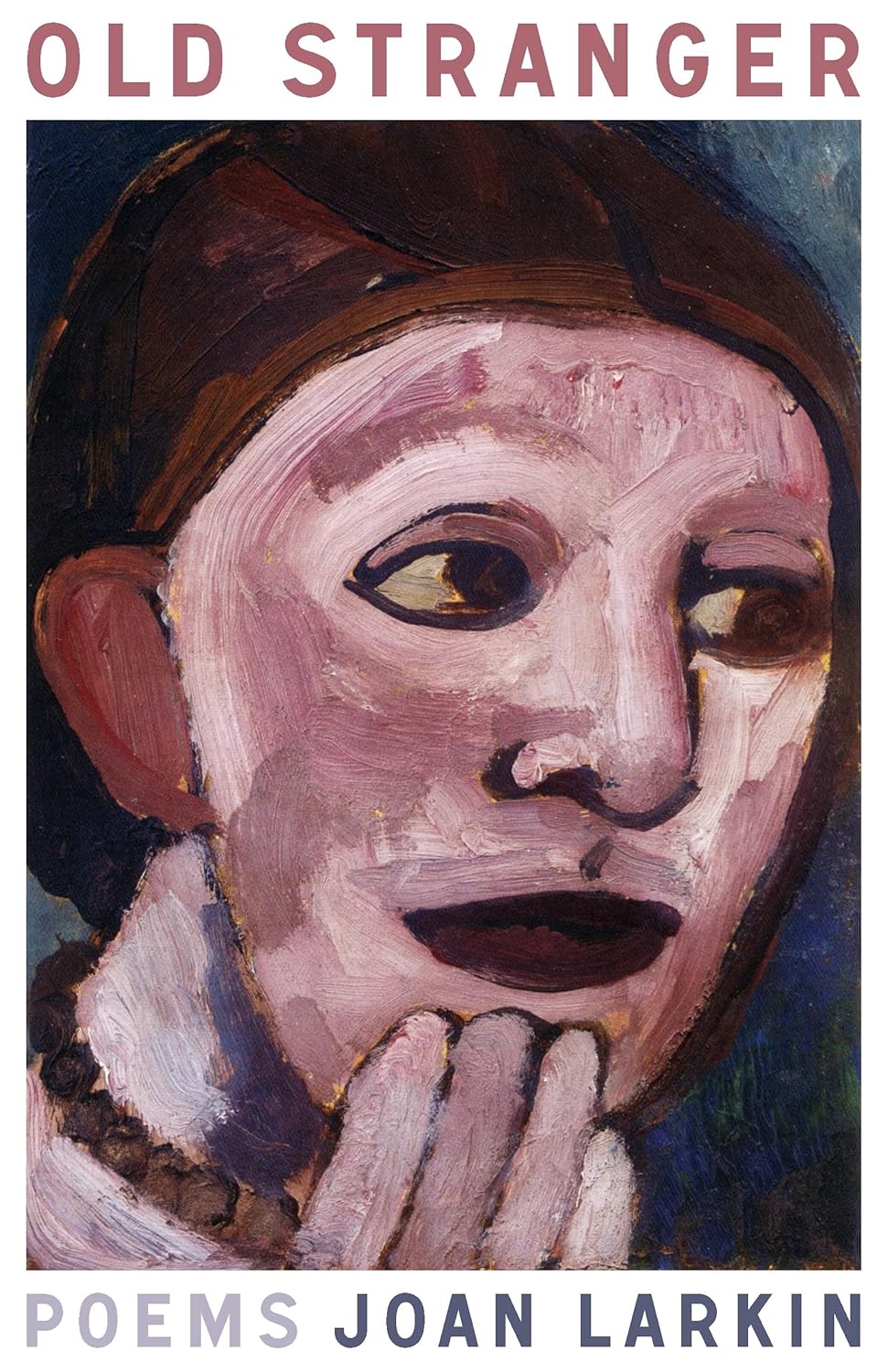Review of Old Stranger: Poems by Joan Larkin

Old Stranger: Poems
Joan Larkin
Alice James Books, 2024, 100 pages
$24.95
Reviewed by Laura Gibbs
Joan Larkin’s Old Stranger records what it means to sit with the discomforting thought of one’s mortality without flinching. As Larkin’s sixth poetry collection, it is the latest addition to a long line of celebrated work that is unceasingly direct, expansive, and unguarded.
The first of the poem’s compact sections, fittingly titled “Girls Department,” deals with the beauty, the awkwardness, and the violence of youth. My personal favourite from this opening sequence is the poem, “Hexagon-Tiled Bathroom Floor”—a transformation of her quotidian childhood experience of staring at tiles into a musing upon the difficulty her adult self will face in achieving intimacy; like the grout between the hexagons, she will stand “aloof from love” (5). There is a certain breathlessness that pervades many of these early poems due to Larkin’s regular deployment of lengthy stanzas and minimal punctuation, as can be seen in “The Body inside My Body,” “Chain of Events,” and “All at Once.” Youth, in these poems, means ceaseless and often destructive movement.
As the reader progresses through the collection into the middle sections, titled “Old Stranger” and “Whisper Not,” a lingering and mournful voice begins to be heard. The once heady and overwhelming atmosphere of youth is bitterly altered as Larkin reflects upon what it means to live in the face of the deaths of others, including her father, in poems like “The Green Box” and “Gilmore Road.” “Show Jumper” is particularly arresting in its melancholy as Larkin’s speaker levels directly with an unknown figure who has fallen from sporting stardom into the throes of suicidal ideation.
“Crouching Woman,” the final section of Larkin’s collection, is a fitting conclusion to the considerations that pervade her collection—from the unspoken alienation of childhood to the inevitable frailty in old age, including a microscopic focus on quotidian details as well as abstract meditations upon the blurred boundary between creation and destruction. Larkin incorporates a meta-artistic perspective into the majority of these poems, such as “Crouching Woman,” dedicated to the French figurative sculptor Camille Claudel, and the visually arresting “Paula Modersohn-Becker: Six Paintings,” in which Larkin’s stark use of white space resembles the inability to avoid the inquisitive glare of the pregnant subject found in the eponymous painter’s Portrait of Myself on my Sixth Wedding Anniversary. Larkin’s contemplation of other artists leads to the crescendo of her final poem, “Ampersand,” where she considers the intersection of her life and poetic craft as “A pregnant roundness” and “a needle threading itself, / a snake encircling Mercury’s staff” (71).
Larkin’s collection could be seen as something of an “Old Stranger” to its readers, in its strange blending of the known and the intimate with what is alienating and, therefore, largely repressed. Old Stranger is a refusal to give in to the binary thinking that would have these juxtaposing modes of human life strictly separated. It is for this reason that I would recommend Larkin’s collection to anyone willing to sit within the unblinking gaze of her most rattling reflections.
Laura Gibbs is a former Sinister Wisdom intern and master’s student based in Scotland. Her poetry has been published in Ink Sweat & Tears, and The Gentian. Her hobbies include spending all her money in bookstores and sitting by the sea. You can follow her on Instagram @lauramusing.
"Empowerment comes from ideas."
― Charlene Carruthers
"Your silence will not protect you."
— Tourmaline
"Gender is the poetry each of us makes out of the language we are taught."
— Leila Raven


